THERMA THERMOFÜHLER GMBH
Germany
Manufacturer/ Producer

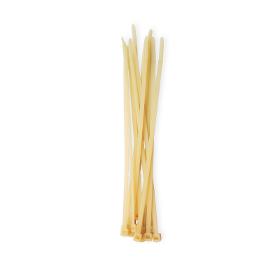
THERMA THERMOFÜHLER GMBH
Germany
Helpfully for quick installation of temperature probes. Our zipties are temperature resistant up to +195°C, especially to fix our dip in a hot. Temperatur range: -40 °C bis +150 °C permanent, +195 °C temporary
Request for a quote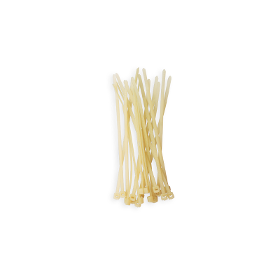
THERMA THERMOFÜHLER GMBH
Germany
Helpfully for quick installation of temperature probes. These zipties are temperature resistant up to +195°C (temporary), especially to fasten our dipstick-thermocouples on a hot tub. Temperatur range: -40 °C bis +150 °C permanent, +195 °C temporary
Request for a quote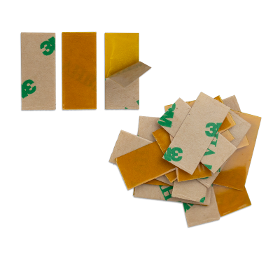
THERMA THERMOFÜHLER GMBH
Germany
The adhesive kapton foil as accessory to our self-adhesive thermocouples. Temperatur range: +150°C continuous, +260 °C temporary GoodUV-, aging- and solvent resistance
Request for a quote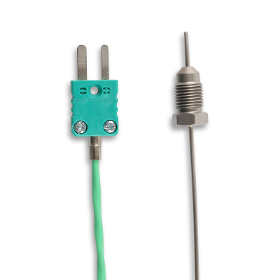
THERMA THERMOFÜHLER GMBH
Germany
The braking fluid thermocouple from Therma convinces not only with its compact construction but also with its simple installation. Just screw it in in-place of the air vent screw to measure the temperature of the brake fluid. The subsequent sheathing line can then be comfortably bent in the required direction. When the thermocouple is screwed in, the braking system is then vented through its thread. The temperature measurement of the brake fluid, along with the brake disc surface measurement, also supplies important control values for a successful and safe race. During long races or races with many downhill routes, the brake disc overheats over-proportionally. The accruing radiation heat during this has a direct effect on the brake fluid, respectively heats it up. Depending on the type of brake fluid being used, it already reaches its boiling point at approx. 140–260 °C.
Request for a quote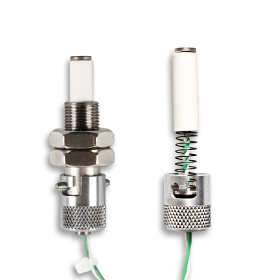
THERMA THERMOFÜHLER GMBH
Germany
With the Therma friction thermocouple you can determine the surface temperature of the brakes while driving. Attaching the mounting adapter puts uniform pressure on the brake disc through the spring-loaded sensor by using a bayonet cap. That perfectly compensates movements caused by centrifugal force and vibrations as well as the volume decrease caused by disc wear while ensuring a valid measurement. The brake disc friction sensor measures the surface temperature of the brake disc. It imparts important insights about the temperature development. That enables an indication about the brake line, intake and temperature radiation. A brake disc that becomes too hot during a race massively loses its effectiveness and deceleration to the accustomed and optimal degree is no longer possible. If the temperature is too high, the brake pads start gassing on top of that.
Request for a quote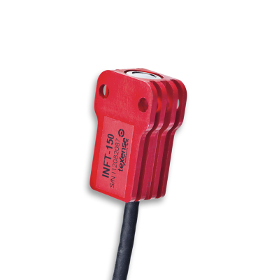
THERMA THERMOFÜHLER GMBH
Germany
The infrared temperature sensor from Therma is perfect for measuring the current tyre temperature. The temperature of the tyre and thus the associated effects are decisive factors for success in motor sports. The tyre pressure is strongly temperature-dependent. The measurements collected by the sensor permit conclusions to be drawn for ideal vehicle tuning. Large fluctuations have a direct effect on the vehicle performance and the service life of the tyre.
Request for a quote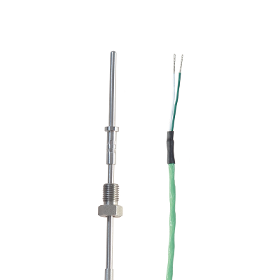
THERMA THERMOFÜHLER GMBH
Germany
This plug-in sheathing thermocouple is recommended for measuring the temperature in the exhaust gas flow. It is genuinely multipurpose, mounting with the cap nut means the thermocouple does not need to be rotated, which simplifies installation and fast replacement. In addition, it has “motor sports genes” such as vibration resistance, fast response time and high temperature resistance. The benefits: Vibration-proof Fast response time High temperature resistance (up to 1,200 °C) Various installation lengths can be supplied With cap nut Sheathed thermocouple NiCr-Ni, Type “K”, Class 1
Request for a quote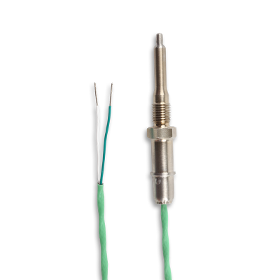
THERMA THERMOFÜHLER GMBH
Germany
This sensor for measuring exhaust gases was developed together with a Formula 1 team. The goal was to achieve the greatest possible reliability during the race. The sensor was designed so that it can withstand a maximum of vibrations and extreme temperatures while being made in a highly compact construction at the same time. The special feature is the connection lead. It is not made from the usual mineral-insulated stainless steel sheathed line, which is too rigid and which tends to vibration fractures. Instead, the line is made of stranded conductors with PTFE insulation and an additional heat shield so it can be easily and flexibly adapted to the environment. The sensor is being used with exceeding success by professional teams in long distance races, American race series and the domestic DTM. The benefits: Highly vibration-proof Very robust High temperature resistance (up to 1,200 °C) Individual plug assembly possible Can be individually adapted
Request for a quote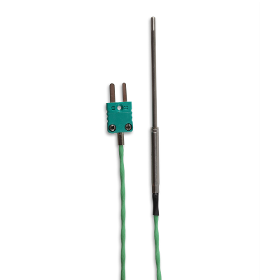
THERMA THERMOFÜHLER GMBH
Germany
The sheathing thermocouple from Therma is perfect for reliable and fail-safe temperature measurement in the exhaust gas system. It excels with its simple structure. By selecting double-walled sheathing material made of Nimonic75, this thermocouple is well prepared for corrosion influences and vibrations along with extremely high temperatures. Furthermore, assembly with a compression-type fitting lets you decide the installation length onsite. Sheathed thermocouples NiCr-Ni, Type “K”, Class 1
Request for a quote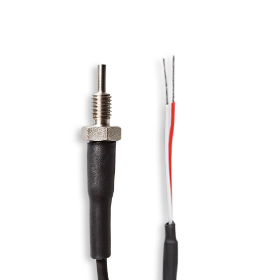
THERMA THERMOFÜHLER GMBH
Germany
The versatile Therma resistance thermometers convince with their precise measurement of fluids in the vehicle. They are optionally available with M6, M5 or M4 male threads. The technical equipment of the resistance sensor offers additional options. It is available as Pt100 or Pt1000, in Class A or optionally also as NTC 10 KΩ. This versatility ensures compatibility with motor sports products and controllers from Bosch. Screw-in resistance thermometer as Pt100 or Pt1000 or NTC 10KOhm
Request for a quote